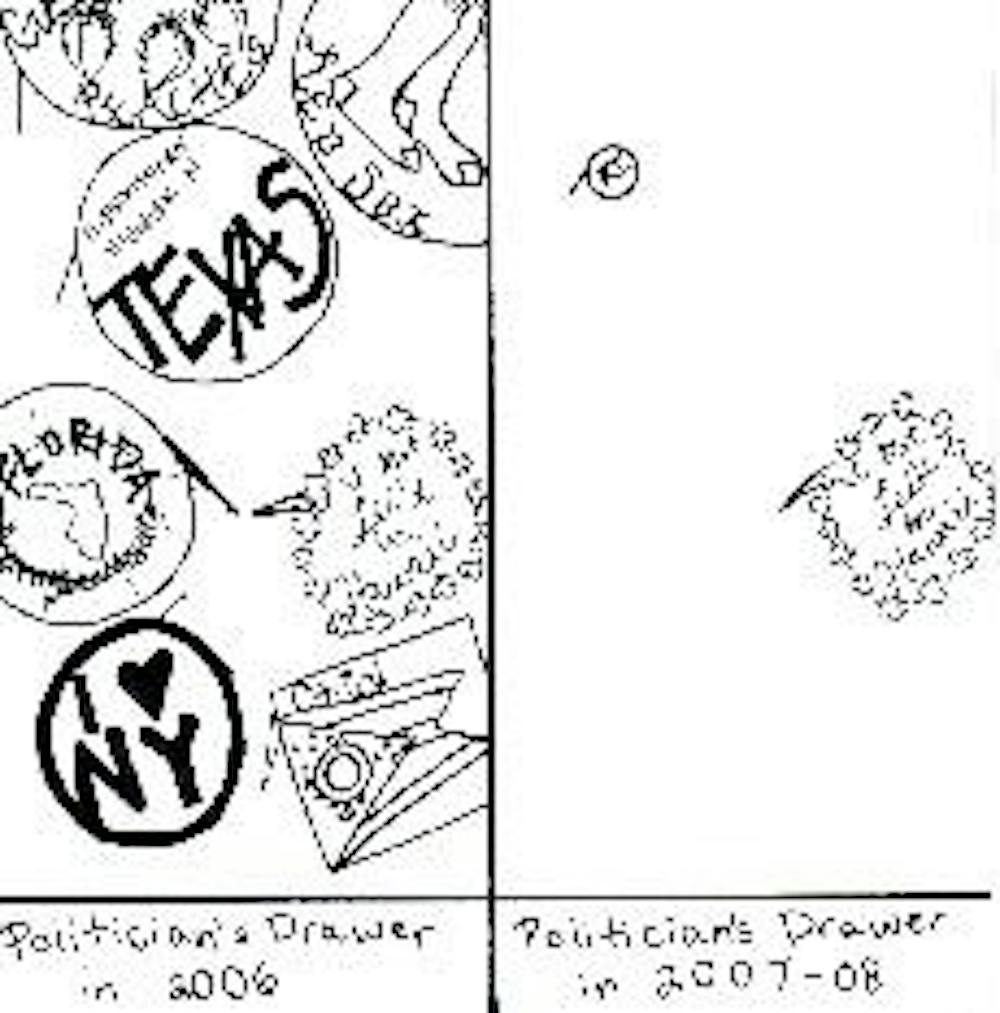
Kelly Morton
When voters in 57 Ohio counties go to the polls to cast their ballots in the state's March 4 primary election, they will have a choice between using electronic voting machines and casting their votes on redesigned paper ballots, due to an order issued by Secretary of State Jennifer Brunner. Only a few years after three different companies were contracted to produce Ohio's electronic voting machines (Election Systems & Software, Hart Intercivic and Premier Election Solutions-formerly Diebold), the Evaluation and Validation of Election-Related Equipment, Standards and Testing (EVEREST) project has recently reported on critical security failings in the machines, with the potential to threaten credible election results. The Miami Student editorial board believes that this new order issued by Brunner will not improve the credibility of Ohio's votes-it will instead murk an already flawed system. There must be revamped, simple election procedures in Ohio that would result in credible hardcopies of voting records being maintained.
Since the 2000 presidential election, Congress has banned the use of the traditional punch-card voting method, thus new paper ballots would resemble Scantron forms. Many experts are worried about the added cost of this measure, in addition to the potential loss in efficiency in reverting from an all-electronic system. This editorial board believes that cost should not be an issue in maintaining the legitimacy of our nation's elections.
The presentation of Brunner's solution is extremely ill timed mere months before the election. In order to match paper ballot orders in time for the election, local election officials have begun estimating demand based on turnout rates for each municipality from the 2004
election-calculated to only 10 percent of each municipality's potential voting population. This editorial board acknowledges the enormous increases in primary voter turnout already seen in Iowa and New Hampshire, and is concerned about the availability for paper ballots of larger-than-expected voter turnout.
Raising even more concern is the process by which paper ballots can be used. In those 57 vulnerable counties, the paper ballot proposal is seen only as an alternative and not a replacement method of securing the vote. Furthermore, one can only receive a paper ballot after specifically asking for one-it would not be an election officials' obligation to inform a voter of alternative voting methods.
Of course, if the current machines are truly compromised and pose a serious risk to credible election outcomes, then the presence of paper ballots in any less than full and complete capacity would result in election results still possibly being skewed by the use of even a small number of electronic voting machines.
The Miami Student believes that either a paper or an electronic system could be potentially extremely effective, successful and secure-however that outcome rests on the ability of the machine manufacturers and the governing election municipalities to secure physical records of the voting results as an ultimate failsafe.
This board believes that an initial response should be increasing communication and cooperation between voting municipalities. Without the desire for or ability of the federal government to intervene into specific voting questions, a quick and effective solution to this threat to democracy can remove growing electoral concern and once again empower citizens to vote with the knowledge that their vote will count.




